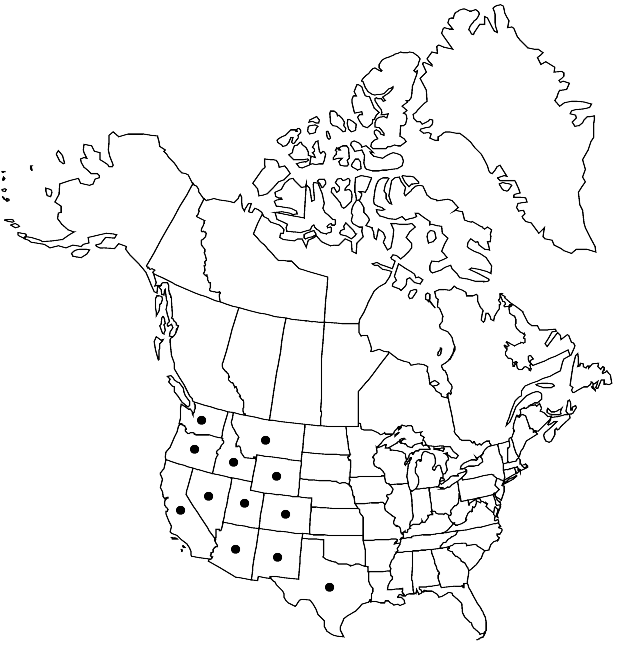Noccaea fendleri subsp. glauca
Syst. Bot. 29: 382. 2004.
Stems (0.1–)0.5–3.2(–4.5) dm. Basal leaves: petiole differentiated from blade, 0.8–1(–2) times longer than blade; blade ovate to oblong, 4–9(–15) mm wide, base cuneate. Cauline leaves (4–)7–16(–21). Racemes often lax. Fruiting pedicels horizontal to strongly descending, forming an angle to 130º with rachis. Flowers: petals white or, occasionally, pinkish purple, (3.4–)4–7(–8.5) × (1–)1.5–2.7(–4.2) mm. Fruits winged or, occasionally, not winged, obovate to obcordate, (2.5–)5–8(–12) × (1.5–)2.6–4.5(–6.6) mm, 1–2 times as long as wide, apex obtuse, truncate, to emarginate; style (0.4–)1–2.2(–3) mm. Seeds 4–6 per fruit. 2n = 14, 28.
Phenology: Flowering Apr–Aug.
Habitat: Dry or moist, open alluvial flats or fans, rocky or talus slopes, scree, limestone cliffs, alpine or subalpine meadows, near snowbanks, streamsides, forest clearings
Elevation: 300-4400 m
Distribution

Ariz., Calif., Colo., Idaho, Mont., Nev., N.Mex., Oreg., Tex., Utah, Wash., Wyo., Mexico (Chihuahua).
Discussion
Subspecies glauca, which is the most morphologically variable and most widespread North American taxon in Noccaea, corresponds to Thlaspi montanum var. montanum in the sense of P. K. Holmgren (1971) and R. C. Rollins (1993). As indicated above, that variety is a strictly European taxon. Subspecies glauca exhibits a wide elevational range, and one collection, Clements 427 (US), was made at 4350 m at the summit of Pike’s Peak, Colorado.
Selected References
None.